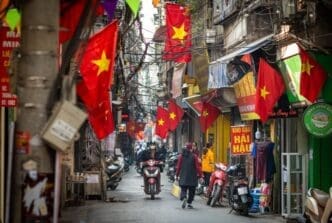Vietnam has enacted stringent new regulations on social media aimed at curbing dissent and controlling information flow. These regulations empower authorities to easily track, silence critics, and remove posts deemed illegal within 24 hours, as detailed in a report by The 88 Project.
The Vietnamese government has implemented ‘Decree 147’, significantly tightening regulations on major social media platforms such as Facebook, YouTube, and TikTok. This move is perceived as a method to stifle criticism and enforce the government’s narrative. According to Ben Swanton of The 88 Project, any substantial challenge to the government and the Communist Party’s official narrative is viewed as a threat that must be controlled.
A key aspect of the new regulations is the requirement for users to verify their accounts using phone numbers or national ID cards. Social media companies are also mandated to store user data within Vietnam and provide access to this data upon government request. These measures are designed to prevent users from engaging in citizen journalism or sharing information about government misdeeds.
Implementation of this decree means social media companies are required to grant authorities access to their internal search tools to identify and remove offending content. Although companies like TikTok and Facebook have not commented on how they will handle these requirements, researchers have observed a noticeable decline in political discourse online.
The impact of this regulation is already visible, with prominent journalists and activists facing imprisonment or exile, leading to a pervasive culture of self-censorship. Swanton describes this as an ‘icy stranglehold’ on free speech, transforming the existing chilling effect on dissent into a more severe suppression.
In a recent incident, authorities reviewed the profiles of over 13,000 members of a Facebook group that reportedly contained anti-state content. They identified and confronted 20 members, demanding their departure from the group. This tactic exemplifies how Decree 147 could expedite the identification and suppression of dissident voices online.
The new regulations have sparked concern among free speech advocates globally, who urge social media companies to resist complying with aspects of the decree that violate rights to free expression. Project 88’s call for international pressure aims to encourage Vietnam to reconsider or repeal these restrictive measures.
Vietnamese authorities have not responded to requests for clarification or comment on the decree’s intent. Meanwhile, the global community watches as these developments unfold, impacting how Vietnamese citizens access and share information.
The implementation of Vietnam’s Decree 147 serves as a stark reminder of the ongoing global challenges to free expression. The international community remains vigilant, hoping for measures that respect fundamental rights rather than restrict them.








